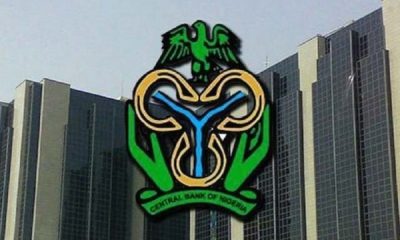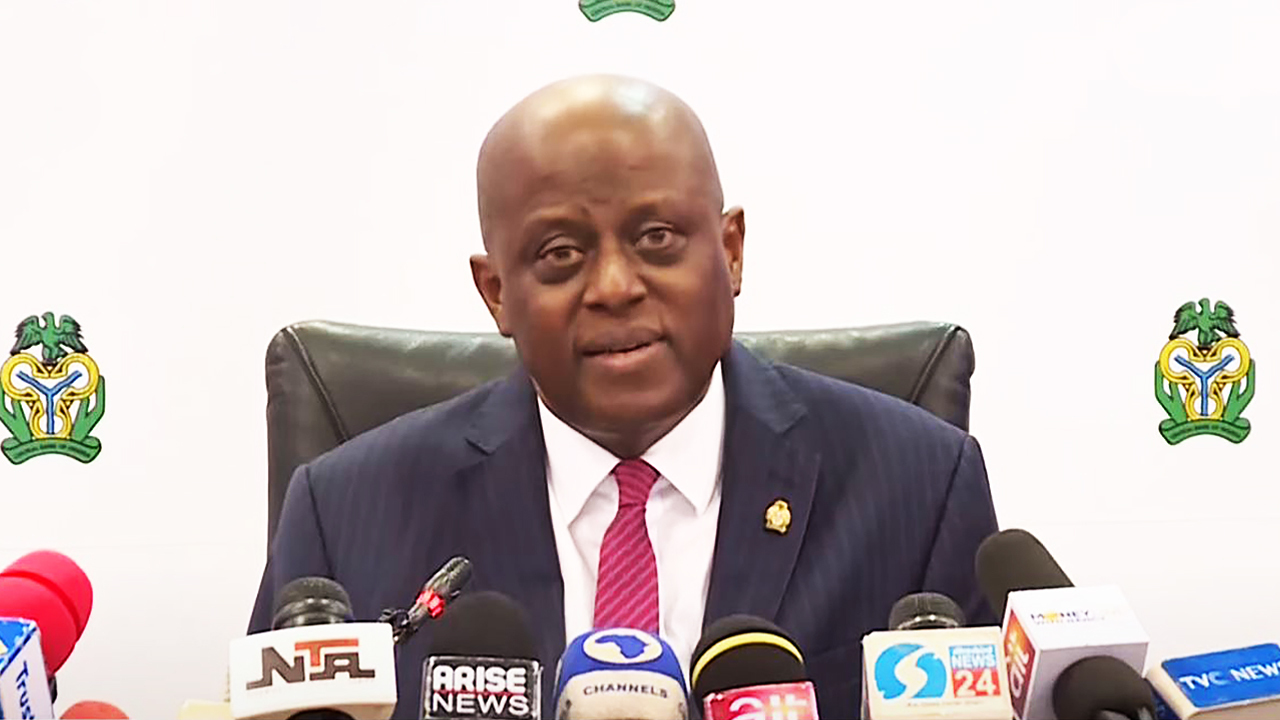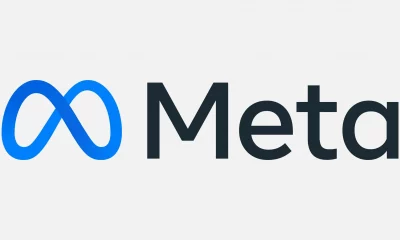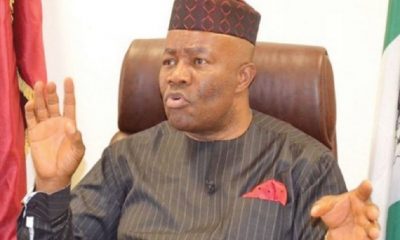General
SERAP Wants INEC to Publish Financial Details of Political Parties
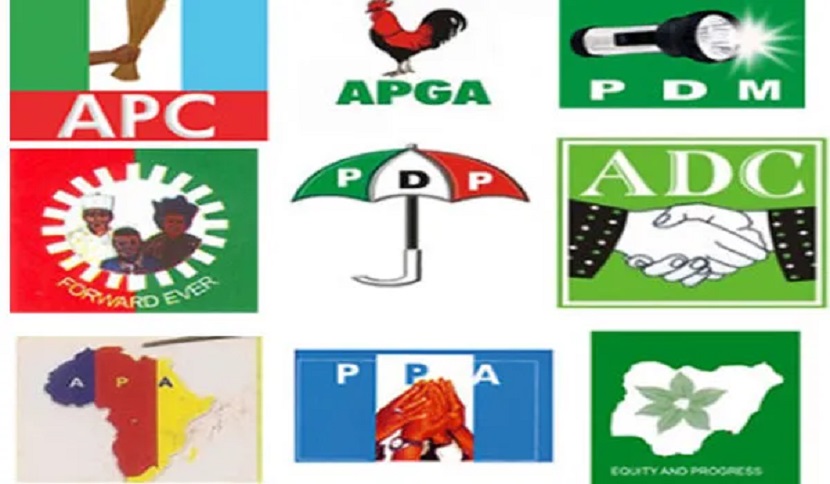
By Adedapo Adesanya
In its latest move, the Socio-Economic Rights and Accountability Project (SERAP) has urged the Independent National Electoral Commission (INEC) to publish the reports on the accounts and balance sheets of every political party submitted to the National Assembly since 2015.
The group called on Mr Mahmood Yakubu, the Chairman of the body, to make available the request in a letter dated May 21, 2022, signed by SERAP deputy director, Mr Kolawole Oluwadare.
SERAP urged him to “urgently examine the books and records of financial transactions of political parties, and to make public the outcome of any such examination.”
It also urged him to “provide details of the guidelines, and steps that INEC is taking to prevent vote-buying in the forthcoming elections in Ekiti and Osun states and 2023 general elections, and to prosecute vote buyers and other electoral offenders.”
Recently, the All Progressives Congress (APC) collected N100 million for its presidential form while the opposition Peoples Democratic Party (PDP) collected N40 million for the same purpose for the 2023 elections.
The organisation also alleged that some leading political parties and politicians also spend between N250 to N14,000 to buy votes.
The organisation said: “Nigerians have the right to know about the accounts and financial transactions of their political parties, especially the major parties with a strong possibility to assume government in the future.”
According to SERAP, “transparency and accountability of political parties is important to achieve greater transparency in public life, curb the influence of money in politics, promote a level playing field, and remove the risks to the independence of political actors and would-be public office holders.”
SERAP also said, “It is both immoral and illegal to pay citizens to vote for a particular political party or candidate. Unpunished cases of vote buying and related electoral offences would continue to undermine good governance, the rule of law, moral values, as well as hinder citizens’ participation in elections.”
The letter, read in part: “When a political candidate decides to buy the support of the people rather than contest fairly for their votes, there are possibilities that such candidate will show a disregard for democratic rules and a disposition to adopt illegal means becomes inevitable.
“Vote buying and related electoral offences encourage poor governance and weaken citizens’ capacity to hold their elected officials accountable for their actions.
“SERAP urges you to urgently take measures and to collaborate with appropriate anti-corruption agencies to ensure the effective prosecution of any outstanding cases of vote buying and related electoral offences allegedly committed in the context of the 2019 general elections.
“We would be grateful if the recommended measures are taken within 14 days of the receipt and/or publication of this letter. If we have not heard from you by then, SERAP shall consider appropriate legal actions to compel INEC to comply with our request in the public interest.
“The lack of transparency and accountability in political finance is seriously undermining the legitimacy and credibility of the democratic and electoral processes, and invariably contributing to denying the citizens the right to effective participation in their own government.
“The failure of political parties to comply with transparency and accountability frameworks would undermine citizens’ trust in their political parties and lack of trust will inevitably destroy confidence in the system and decrease citizens’ interest and participation in the democratic process.
“Elections are only one part of the democratic process, and a fair and effective electoral system must be founded in an adequate democratic infrastructure and responsibility of political leaders.
“According to our information, several political parties have for many years failed to submit their annual financial statements to INEC. Many political parties have failed to submit election expenses reports, and to disclose material contributions received from individuals and corporate bodies to the Commission.
“The Commission has also been apparently unable or unwilling to monitor, examine and publish these financial statements.”
“Also, some leading political parties, politicians and other political actors reportedly paid between N250 to N14,000 to buy votes. For many years, allegations of vote buying (the payment of cash or gifts in exchange for voting) and related electoral offences have characterised elections and party primaries in the country.
“SERAP is concerned that despite several provisions of the Electoral Act (as amended), anti-corruption laws, and the country’s international anti-corruption obligations, suspected perpetrators of vote buying and related electoral offences frequently escape justice for their crimes.
“However, INEC has consistently failed to exercise its powers and to provide the leadership that would promote collaboration with appropriate anti-corruption agencies to facilitate and ensure thorough, transparent and effective investigation of cases, and the arrest and prosecution of suspected perpetrators.
“Section 86(1) of the Electoral Act 2022 requires every political party to submit to INEC a detailed annual statement of assets and liabilities and analysis of its sources of funds and other assets and statement of its expenditure. Failure to comply is an offence under Section 86(2), which is punishable by imprisonment for a term of six months or a fine of N1,000,000 or both.
“Under Section 86(3)(4) INEC has the power to examine the records and audited accounts kept by any political party, and to publish the report on such examinations and audit in two national newspapers and Commission’s website within 30 days of receipt of the results.
“Section 226 (1) of the Electoral Act 2022 also requires INEC to prepare and submit a report every year to the National Assembly on the accounts and balance sheet of every political party. Under Section 225(5), INEC has the power to give directions to political parties regarding their books or records of financial transactions.
“The Nigerian Constitution and international standards guarantee and protect the right of all qualified citizens to vote, in state as well as in general elections.
“The right to vote freely for the political party and candidate of one’s choice is of the essence of a democratic society, and any restrictions on that right strike at the heart of representative government.
“The effective exercise of the right of qualified Nigerians to have a voice in the election of those who make and enforce the laws under which, as good citizens, they live can contribute to the enjoyment of other human rights, including to corruption-free public services, freedom of expression and digital and data rights.
“Public confidence in voting systems serves as an indispensable feature of a full and healthy democracy.
“Persistent failure to arrest and prosecute suspected perpetrators of vote buying and related electoral offences may ultimately undermine public confidence, the integrity of the country’s elections, and lead to widespread disaffection with the electoral process.”
General
Ikeja Electric Fumes Over Impropriety Allegations Against CEO, Chairman
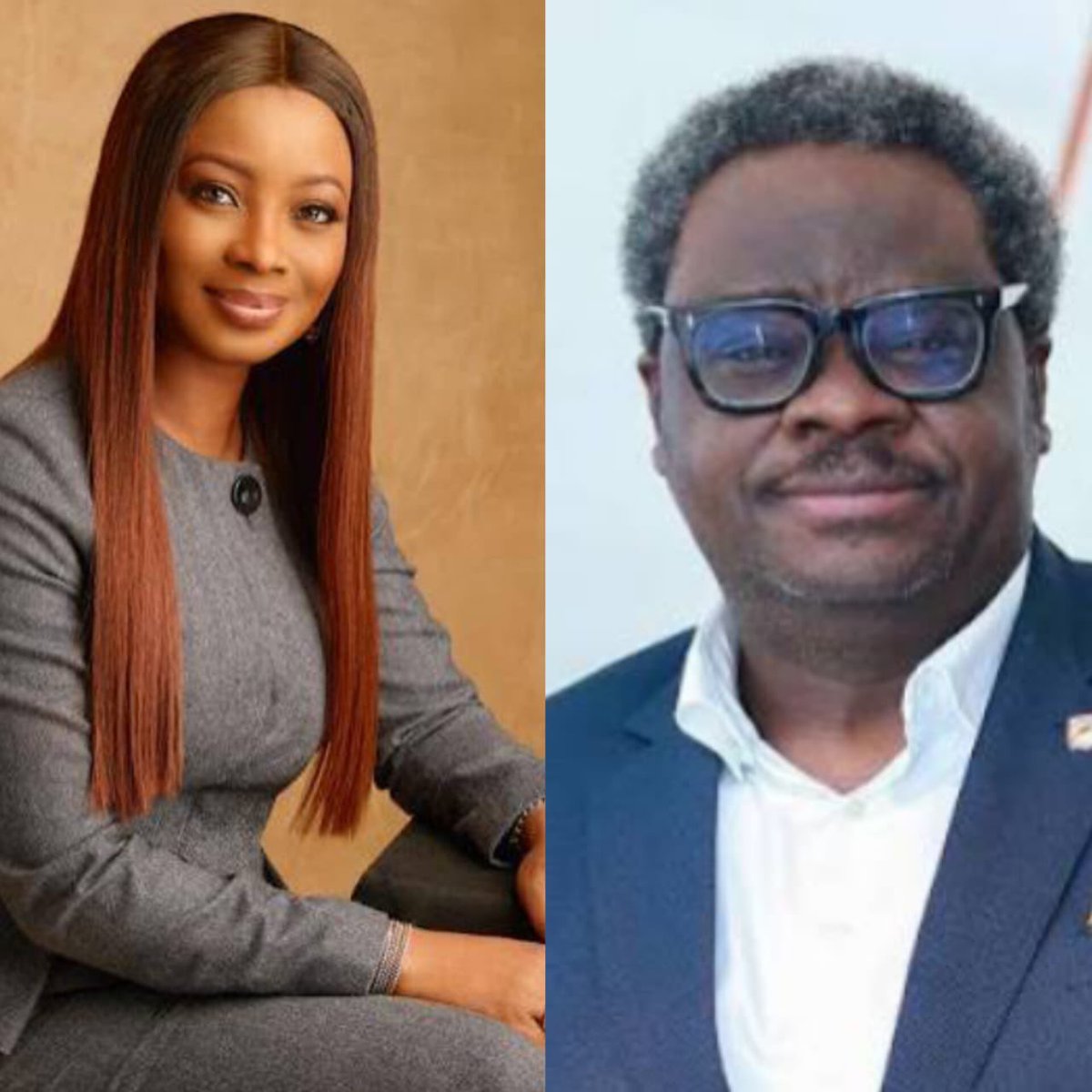
By Adedapo Adesanya
Ikeja Electricity Distribution Company has described as malicious and misleading a widespread publication currently circulating online alleging impropriety about its chief executive, Ms Folake Soetan, and its board chairman, Mr Kola Adesina.
The management of the DisCo noted that a publication attributed to ‘Nigerian Global Business Forum’ defamed its CEO and the chairman of the IKEDC board.
The company said, “The publication, attributed to yet to be verified individuals and organisation, is clearly intended to misinform the public and bring the company and its leadership into disrepute through fabricated claims, the DisCo observed.”
Ikeja Electric noted that its investigation so far revealed that the ‘Nigerian Global Business Forum’ is an unregistered organisation with no recognised legal or corporate existence locally or abroad.
According to the energy firm, the signatories, “Dr Alaba Kalejaiye” and “Musa Ahmed,” have no verifiable professional credentials or established public profiles, and the publication contains false and misleading statements regarding Ikeja Electric’s operations, safety record, and financial practices.
The organisation said it had instructed its legal advisers to conduct a thorough forensic investigation and to initiate defamation proceedings against the authors, publishers, and any persons or entities found responsible for sponsoring or disseminating this malicious publication.
Ikeja Electric said it operates within a strict framework of accountability and remains committed to transparency and service improvement, warning it will not tolerate coordinated disinformation campaigns aimed at undermining public confidence and tarnishing its corporate integrity.
“Ikeja Electric remains steadfast in its mandate to deliver reliable power while upholding the highest standards of corporate governance and customer excellence.
Members of the public are advised to disregard the false publication in its entirety,” it said in a statement.
General
PMS May Sell N1,000 Per Litre if Marketers Adopt Costly Coastal Loading
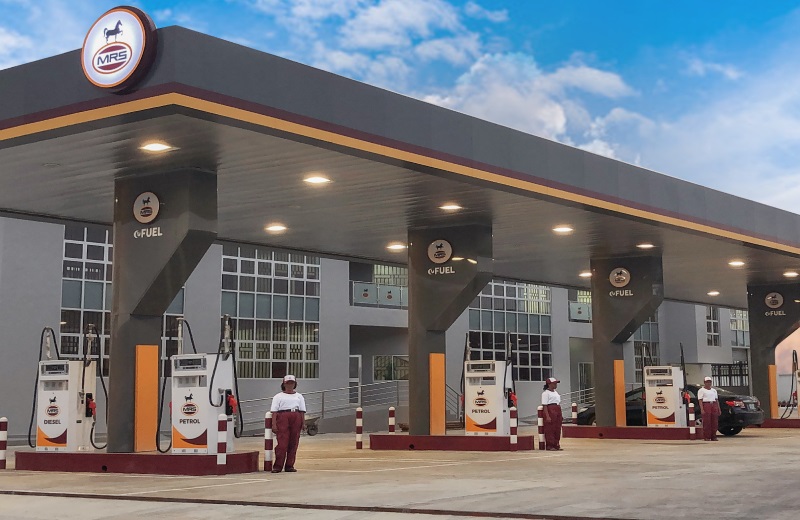
By Aduragbemi Omiyale
Nigerians may be forced to purchase premium motor spirit (PMS), commonly known as petrol, for almost N1,000 per litre if marketers choose to go for the costly coastal evacuation and not the cheaper gantry loading, the Dangote Petroleum Refinery has cautioned.
Though the company clarified that marketers were free to choose their preferred mode of evacuation, it emphasised that the implication of adopting the coastal loading was that consumers would pay more for the product because of the extra costs.
According to Dangote Refinery, “Coastal logistics can add approximately N75 per litre to the cost of petrol, which, if passed on to consumers, would push the pump price of PMS close to N1,000 per litre.”
The firm noted that its “world-class gantry facility” has 91 loading bays capable of loading up to 2,900 tankers daily.
Operating on a 24-hour basis, the facility can evacuate over 50 million litres of Premium Motor Spirit PMS, 14 million litres of Automotive Gas Oil (diesel) and other refined products each day, it added, urging marketers and policymakers to prioritise logistics choices that support price stability and consumer welfare.
It stressed that direct gantry evacuation eliminates port charges, maritime levies and vessel-related costs that do not add value to end users, helping to optimise costs, improve distribution efficiency and support price stability.
“Reliance on coastal delivery, particularly within Lagos, may introduce avoidable costs with material implications for fuel pricing, consumer welfare and overall economic wellbeing,” the company stated in a statement.
Based on Nigeria’s average daily consumption of about 50 million litres of PMS and 14 million litres of diesel, the refinery estimated that sustained dependence on coastal logistics could impose an additional annual cost of roughly N1.752 trillion. This cost, it said, would ultimately be borne either by producers or Nigerian consumers.
The refinery also renewed calls for coordinated investment in pipeline infrastructure nationwide, arguing that functional pipelines linking refineries to depots would significantly cut distribution costs, improve supply reliability and strengthen national energy security.
It said domestic refining has already delivered measurable benefits to the Nigerian economy. Since the commencement of operations, the price of diesel has fallen from about N1,700 per litre to N1,100 and currently trades between N980 and N990. Similarly, PMS prices have declined from about N1,250 per litre to between N839 and N900.
It added that increased local supply has sharply reduced fuel importation, eased foreign exchange pressures and improved market stability, contributing to a stronger naira, which recently traded at about N1,385 to the dollar.
General
FG Targets 25 million Women in New National Programme Scale-up
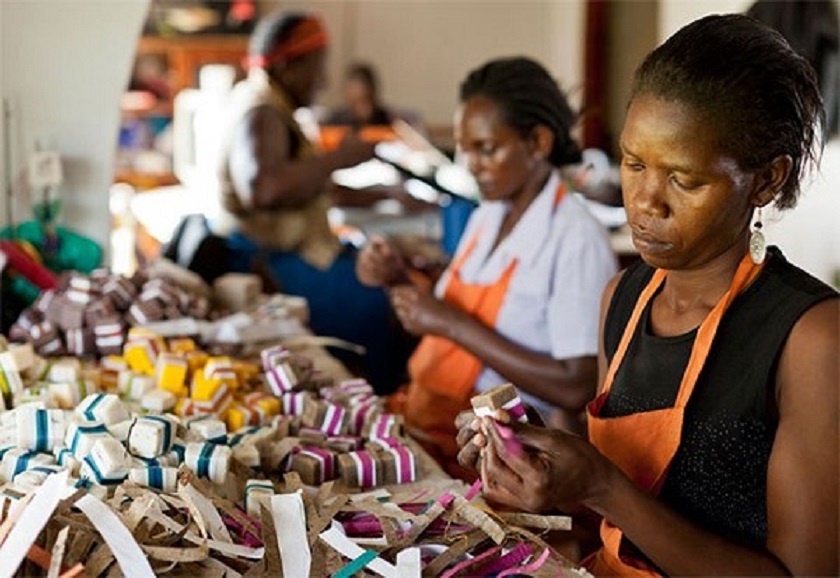
By Adedapo Adesanya
The federal government has launched the Nigeria for Women Programme Scale-Up (NFWP-SU), a strategic investment initiative which is expected to target over 25 million Nigerian women nationwide.
In a Friday statement, it was disclosed that President Bola Tinubu this week inaugurated the NFWP-SU programme, declaring the initiative a strategic national investment and unveiling the government’s ambition to expand its reach to over 25 million Nigerian women across the country.
According to the statement, the President, represented by Vice President Kashim Shettima, said the scale-up marks a decisive shift in Nigeria’s development strategy, with women’s economic empowerment, family stability, and social development placed firmly at the centre of national growth.
He stressed that Nigeria cannot achieve sustainable prosperity while half of its population remains structurally constrained.
“Women are not peripheral to national development. They are central drivers of productivity, custodians of family stability, and indispensable partners in our ambition to build a resilient, competitive and prosperous nation,” the President said, noting that empowering women is essential to job creation, food security, financial inclusion and economic diversification under the Renewed Hope Agenda.
President Tinubu described the programme as more than a social intervention, calling it “a strategic investment in Nigeria’s economic infrastructure.”
He said the success of Phase I of the programme, which reached over one million beneficiaries across six states, provided strong evidence that structured, data-driven empowerment models deliver measurable, lasting impact.
Building on that evidence, the President announced a bold national ambition to scale the programme beyond its current targets to reach 25 million women nationwide, creating a sustainable platform for women’s economic inclusion embedded in federal, state and local systems.
He called on development partners, particularly the World Bank, to support the expansion through financing, technical assistance and innovation.
According to the President, the integration of digital platforms such as the Happy Woman App, identity verification and transparent targeting reflects the administration’s insistence on measurable and verifiable public policy.
“The work of the Ministry has shown what focused execution can achieve. This is how public trust is rebuilt and how government resources reach real people with real impact,” he said.
On his part, World Bank Country Director for Nigeria, Mathew Verghis, said the Bank was honoured to co-finance the NFWP-SU with the Federal and State Governments, describing it as fully aligned with the Bank’s new Country Partnership Framework for Nigeria, which prioritises unlocking economic opportunities, strengthening private sector linkages and creating more and better jobs.
Mr Verghis noted that Nigerian women remain disproportionately affected by poverty, with 64.3 per cent living below the lower-middle-income poverty line, despite their critical contributions to agriculture, trade and enterprise.
He said the Women Affinity Group (WAG) model promoted under the programme has proven to be a powerful tool for lifting women out of poverty by enabling collective savings, access to credit, financial discipline and enterprise growth.
Citing examples from the field, he explained that over 28,000 WAGs currently empower about 600,000 women across Nigeria, allowing them to save together, lend responsibly, invest in businesses and transition into formal financial services.
He added that scaling such models could unlock enormous economic gains, noting estimates that reducing gender inequality could increase Nigeria’s annual GDP growth by more than 1.25 percentage points, while closing productivity gaps across key sectors could add nearly $23 billion to the economy.
“This is smart economics. When women thrive, communities grow stronger, and economies become more resilient,” Mr Verghis said.
Also speaking at the event, Mr Robert S. Chase, World Bank Practice Manager for Social Protection and Jobs, described the Nigeria for Women Programme Scale-Up as one of the most ambitious gender-focused social and economic interventions currently being implemented in Africa.
He said the programme reflects a strong partnership between Nigeria and the World Bank, anchored on evidence, innovation and a shared commitment to lifting millions of women out of poverty.
Mr Chase noted that the programme’s strength lies in its ability to build sustainable systems rather than short-term relief, particularly through the Women Affinity Groups model, which combines social capital, financial inclusion and access to productive opportunities.
According to him, the scale-up phase demonstrates Nigeria’s readiness to institutionalise women’s empowerment as a core development strategy and not merely a welfare initiative.
The NFWP-SU Phase II is a $540 million programme, co-financed by the World Bank and the Federal and State Governments, expanding implementation to all 36 states and the Federal Capital Territory. It aims to directly reach five million women, generate about 4.5 million jobs, and benefit nearly 19.5 million Nigerians indirectly, while laying the groundwork for the broader expansion to 25 million women.
Under the leadership of Minister Imaan Sulaiman Ibrahim, the Ministry of Women Affairs and Social Development has positioned the programme as the centrepiece of wider social and economic reforms.
In Phase I alone, over 26,500 Women Affinity Groups were formed with more than 560,000 members, who collectively saved over N4.9 billion, expanded businesses, paid school fees and met household health needs.
The model has since attracted international interest, with other countries seeking to understudy Nigeria’s experience.
Beyond economic empowerment, the ministry has linked the programme to digital inclusion, civic identity, child protection and family welfare, while rolling out complementary initiatives in agribusiness, energy access, skills development and protection services.
-

 Feature/OPED6 years ago
Feature/OPED6 years agoDavos was Different this year
-
Travel/Tourism9 years ago
Lagos Seals Western Lodge Hotel In Ikorodu
-

 Showbiz3 years ago
Showbiz3 years agoEstranged Lover Releases Videos of Empress Njamah Bathing
-

 Banking8 years ago
Banking8 years agoSort Codes of GTBank Branches in Nigeria
-

 Economy3 years ago
Economy3 years agoSubsidy Removal: CNG at N130 Per Litre Cheaper Than Petrol—IPMAN
-

 Banking3 years ago
Banking3 years agoSort Codes of UBA Branches in Nigeria
-

 Banking3 years ago
Banking3 years agoFirst Bank Announces Planned Downtime
-

 Sports3 years ago
Sports3 years agoHighest Paid Nigerian Footballer – How Much Do Nigerian Footballers Earn


